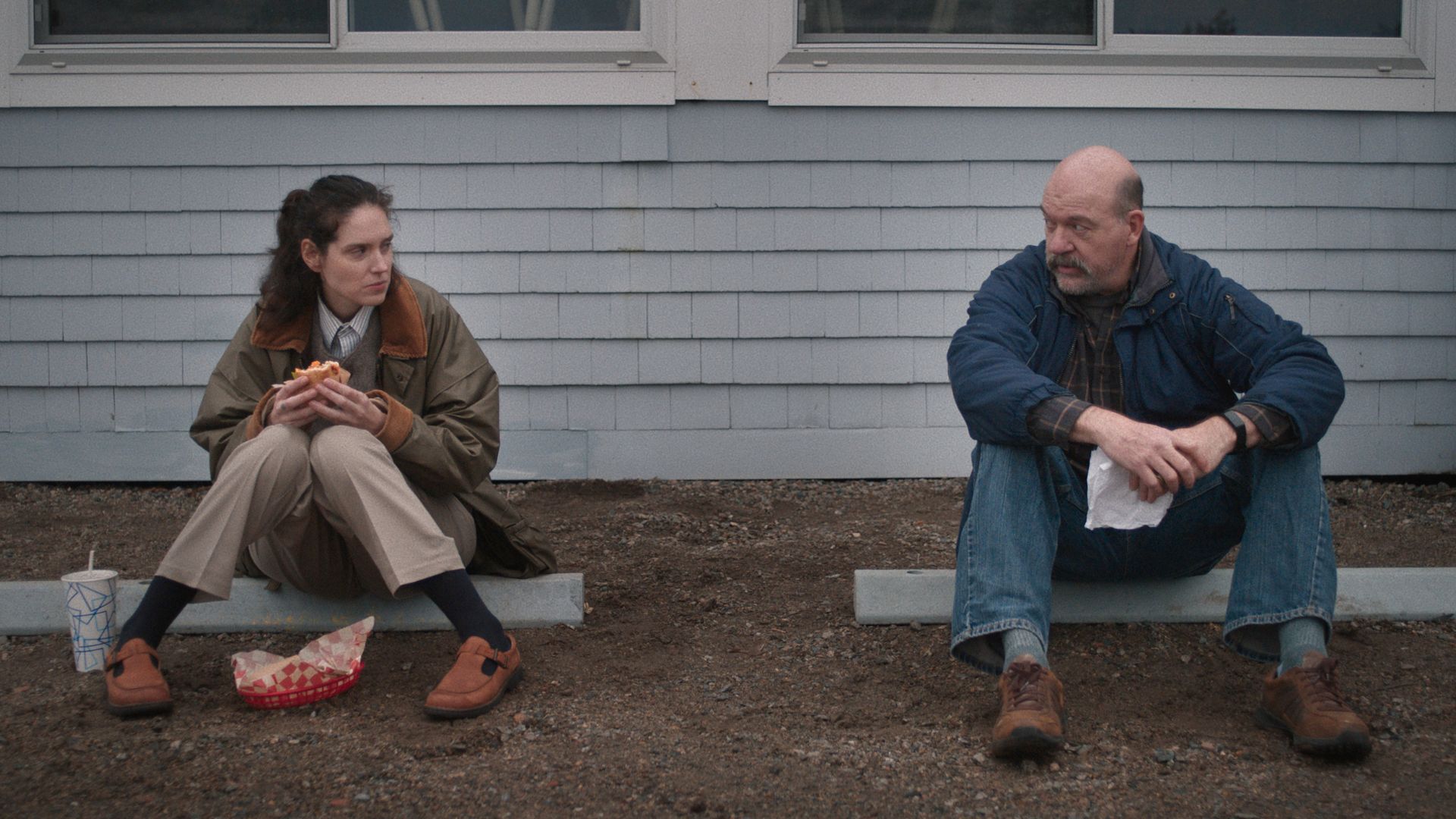Every year, there’s that one film that blindsides you. At Sundance 2025, Sorry, Baby was that film. The kind of quietly revelatory, emotionally complex, and tonally daring project that reminds you why you brave the lines and shuffle between screenings in the cold. An astonishing and idiosyncratic debut from writer-director-star Eva Victor, Sorry, Baby isn’t just a great first film — it’s the confident announcement of a singular new voice in independent cinema.
Admittedly, the logline might not prepare you for the film’s grace, humor, and depth: a grad student-turned-professor named Agnes (played by Victor) navigates the reverberations of a sexual assault as she attempts to rebuild her life in a sleepy Northeastern town. But Victor takes what could’ve been an unbearably heavy subject and transforms it into something surprisingly light on its feet — not unserious, but deeply human. A unique, awkward, and funny tale of girl-to-womanhood that unfolds with quiet urgency, Sorry, Baby is about trauma, yes, but more so about everything that comes after.
Like the best actor-writer-director projects from Albert Brooks or Miranda July, this is a lived-in, hilarious, and heartfelt character study. Victor — already beloved for her short-form videos and comedy sketches — completely surpasses expectations. Her performance is idiosyncratic, quirky, heartbreakingly honest, and riotously funny, sometimes all within the same scene. This is not TikTok-level storytelling. It’s patient, considered, non-sensational, and filled with artfully composed visuals.
One moment that floored me: a Jeanne Dielman-style sequence where a static exterior shot of a house jumps from afternoon to evening, then into night. It’s a breathless, dread-laced passage that quietly pulls the rug out from under you, culminating in a long take that doesn’t offer catharsis but asks the harder question — “how do you live after this?” It’s one of the boldest, most emotionally honest sequences I’ve seen in years.
Sorry, Baby doesn’t sensationalize trauma. Instead, it’s a study in reverberation. It understands that life isn’t a series of dramatic crescendos — it’s filled with the mundane, the awkward, the quietly devastating. And yet, it’s also funny. Genuinely, piercingly funny. Some of the most affecting moments come in the film’s smallest beats: a bathtub breakdown, a panic attack in a classroom, or the hilarious, warm interactions with her sandwich guy. Those scenes? Chef’s kiss.
What struck me most is that the film gets funnier after the traumatic event. It’s not trying to offer easy resolutions or melodrama, but something more radical: honest emotional messiness. The nonlinear structure, far from being a gimmick, enhances this exploration. We feel Agnes’s inner disorientation reflected in the film’s form, and Victor’s performance shifts subtly with each time jump — no easy feat for a first-time director and star.
The supporting cast adds even more texture. Naomi Ackie is radiant and grounded as Lydia, Agnes’s best friend — their dynamic is one of the most realistic female friendships I’ve seen on screen. Lucas Hedges, as Gavin, brings just the right amount of softness and unease to his role as a potential romantic partner. The three of them form a deeply relatable emotional triangle, each relationship contributing to Agnes’s slow crawl toward healing.
The script is razor-sharp — funny, poignant, unflinching — and filled with the kind of dialogue that feels lifted from real life. Even minor characters feel fully inhabited, with quirks and histories that aren’t spelled out but sensed. This is a filmmaker who trusts the intelligence of her audience.
What’s perhaps most astonishing is how restrained it all is. There’s no over-explanation, no swelling strings to guide your feelings. It reminded me of early Mike Leigh in its kitchen-sink realism and economy of storytelling. And yet, when the film does pull a trick — like a subtle shift in lighting, a carefully timed jump cut, or an emotionally loaded silence — it hits like a freight train. The final moments are deceptively simple, but quietly gutting — and the recontextualization of the title? Absolutely perfect.
There’s a particular thesis on a window that’s lingered with me. It’s one of several images that burrow deep, each one speaking to the complexity of triggers and how they sneak up on us — sometimes a loud noise, other times a glance or a smell. Sorry, Baby captures that truth with nuance and care.
Winner of the Waldo Salt Screenwriting Award, and rightfully so, this is a film that walks the tightrope between comedy and grief with stunning ease. It’s a story of a woman reclaiming her life not through grand gestures but through the smallest acts — a conversation, a drive, a sandwich. It’s about survival, yes, but more importantly, it’s about living.
A24 has wisely picked up
Sorry, Baby, and I have no doubt it’ll make waves once it hits general
release. It's a quiet film, but one that’s going to be loudly loved. I
already can’t wait to see what Eva Victor does next — as a writer, a
director, and a performer. With this debut, she’s not just on the map —
she’s carving out her own path entirely.


Comments